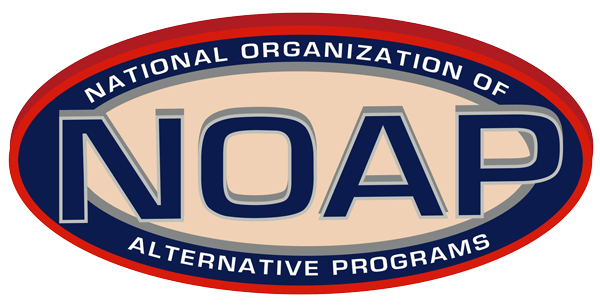NOAP 2018 Annual Conference
NOAP 2018 Annual ConferenceMarch 26-29, 2018Omni Royal Orleans Hotel Best Practices for ATD Programs for Health Care Professionals
|
|
Platinum Sponsors |
||
 |
 |
|
Daily Schedule
Continuing Education Credits
NOAP awards contact hours for nurses and advanced practice nurses who attend the Annual Educational Conference.
NOAP awards contact hours for nurses and advanced practice nurses who attend the Annual Educational Conference.
- This Continuing Education activity will be submitted to the California Board of Nursing.
- This activity has been approved through NAADAC, The Association for Addiction Professionals, provider #144528.
| Time | Monday, March 26 | Location |
| 12noon - 5pm | Registration |
Grand Salon Foyer |
| 1pm - 4pm CE: 3.00 |
1. Best Practices and Components of a Successful Monitoring Program - Organizational Sharing & Group Participation Workshop Sample Questions; Presentation Handout
Objectives:
|
Esplanade |
| 5:30pm - 7pm | Welcome Reception | Grand Salon |
| 7:15pm - 8:15pm | Support Group Meeting - Open | Toulouse |
| Time | Tuesday, March 27 | Location |
| 7:30am - 8:30am | Support Group Meeting | Toulouse |
| 8am - 4:30pm | Registration | Grand Salon Foyer |
| 8am - 9am | Continental Breakfast with Exhibitors | Grand Salon |
| 9am - 9:15am |
Opening Remarks/Announcements
|
Esplanade |
| 9:15am - 10:30am CE: 1.25 |
2. National Practitioner Data Bank & Navigating NCSBN Resources Presentation Handout
Objectives:
|
Esplanade |
| 10:30am - 10:45am | Break | Grand Salon |
| 10:45am - 12:15pm CE: 1.50 |
3. The Tennessee Experience: Mental Health & SUD On Line Support Groups Presentation Handout
Objectives:
|
Esplanade |
| 12:15pm - 1:15pm | Membership Luncheon (open to all attendees and exhibitors) |
Grand Salon |
| 1:15pm - 2:15pm CE: 1.00 |
4. Opioid Free Anesthesia: Abandoning the Mu Receptor Presentation Handout
Objectives:
|
Esplanade |
| 2:15pm - 2:45pm | Break | Grand Salon |
| 2:45pm - 3:45pm CE: 1.00 |
5. Face to Face Mental Health Support Groups Presentation Handout
Objectives:
|
Esplanade |
| 3:45pm - 5pm CE: 1.25 |
6. Recovery Alliance Presentation Handout
Objectives:
|
Esplanade |
| 6:30pm - 9pm | Group Outing - New Orleans Riverboat Cruise (separate registration fee required) Must be on board by 7pm, ticket does not include dinner See www.alternativeprograms.org/2018/cruise |
|
| Time | Wednesday, March 28 | Location |
| 8am - 4:45pm | Registration | Grand Salon Foyer |
| 8am - 9am | Full Breakfast with Exhibitors | Grand Salon |
| 9am - 10:15am CE: 1.25 |
7. The Pain Management HCP in a Monitoring Program Presentation Handout 1; Handout 2
Objectives:
|
Esplanade |
| 10:15am - 10:45am | Break | Grand Salon |
| 10:45am - 12noon CE: 1.25 |
8. ATD Types
Objectives:
|
Esplanade |
| 12:15pm - 1:30pm | Business Meeting Lunch (open to all attendees and exhibitors) Agenda; Meeting Handout; 2017 Meeting Minutes |
Grand Salon |
| 1:30pm - 2:30pm CE: 1.00 |
9. Best Practices in Managing and Monitoring the Health Care Professional with Mental Health and/or Dual Diagnoses Presentation Handout
Objectives:
|
Esplanade |
| 2:30pm - 3pm | Break | Grand Salon |
| 3pm - 4:30pm CE: 1.50 |
10. MRO / Toxicology Panel Discussion Question/Case Studies: (MS Word unless otherwise noted)
Panelists:
Objectives:
|
Esplanade |
| Dinner on your own | ||
| 8pm - 9pm | Support Group Meeting - Open | Toulouse |
| Time | Thursday, March 29 | Location |
| 7am - 8am | Support Group Meeting - Closed | Toulouse |
| 8am - 9am | Continental Breakfast | Grand Salon |
| 9am - 10:15am CE: 1.25 |
11. CRNA; RTW Guidelines/Opioid Therapy for Chronic Pain
Objectives:
|
Esplanade |
| 10:15am - 10:30am | Break | Grand Salon |
| 10:30am - 12noon CE: 1.50 |
12. Less Stress, More Power Presentation Handout 1; Handout 2
Objectives:
|
Esplanade |
| Conference Closing |

